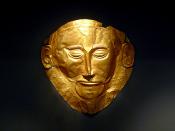Clytaemestra's murder of Agamemnon can be seen as one of the main sins in the play. The Chorus of Argive Elders calls the act 'obscene' and since one of the functions of the Chorus is to direct the audience's sympathy and give voice to pious opinions this indicates Clytaemestra is more sinning than sinned against. However when she defends her acts after the murder to The Chorus she tells them it was she who was sinned against, as her husband Agamemnon 'slaughtered' their 'own child' Iphigenia. She suggests that The Chorus are hypocrites as they 'would not cross' Agamemnon for his murder of his daughter but they call her crime 'treacherous' and are 'stunned' by it even though she says it was 'righteous' to kill him.
Clytaemestra's justification for Agamemnon's murder suggests it was Agamemnon who was the more sinful of the two and she tells the chorus he 'slaughtered' Iphigenia despite the fact his 'pastures swarmed with...
flocks' suggesting he was excessive, killing people when it was unnecessary. This was something the Ancient Greeks thought was a particularly bad sin, as they believed that people should be pious and modest. One of their maxims carved in stone at Delphi was 'nothing to excess'.
However it was out of 'necessity' that Agamemnon had to 'sacrifice' his daughter, as Artemis was so upset at the thought of all the young men who would die at Troy the 'winds blew from the Strymon' at her command so the Greeks could not sail and would only let them go in exchange for Iphigenia's 'slaughter'. Although this suggests it was Agamemnon who was 'sinned against' the Chorus of Argive Elders still call him 'sacrilegious' and an 'infidel' because the murder of Iphigenia, a 'sweet', 'innocent' girl was a sin.
Revenge for Iphigenia...


